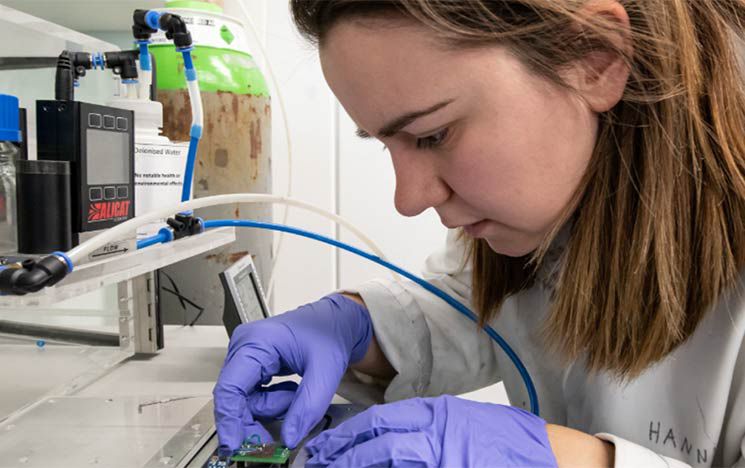Engineering and Physical Sciences Research Council (EPSRC) Doctoral Landscape Award
Find out more about the EPSRC scholarships and how to apply.

PhD scholarships
You may be eligible to apply for projects funded by the Sussex EPSRC Doctoral Landscape Award grant if you’re conducting research in a number of subject areas. You'll receive support with fees, living costs and have access to further funds for research expenses and specialist research training opportunities.
Accepting applications
Applications are open. View the advert to find out more.
Who can apply for an EPSRC scholarship?
Whether you’re keen to work with an industry partner or tackle a more theoretical challenge, we’re offering a wide range of research projects in and across a range of departments:
• Engineering
• Informatics
• Chemistry
• Mathematics
• Materials Physics.
How to apply for an EPSRC scholarship
- Take a look at the EPSRC research areas and projects in our EPSRC brochure [PDF 2MB].
- Contact a potential EPSRC supervisor (or several supervisors) to discuss a research project.
- Create a PhD application using our online application system. Find out how to apply to Sussex.
- Indicate in the finances/funding section that you intend to apply for an EPSRC scholarship.
- Upload our EPSRC application form [DOCX 74KB] together with your CV, degree transcripts, English language qualifications (if relevant) and details of two referees.
- Complete the online EPSRC data collection form and submit your application by the deadline shown in the advert.
You may be invited to an interview as part of your application for an EPSRC scholarship.
Examples of funded scholarships
Recent EPSRC-funded scholarships have included:
- Resonances for the Dirac equation with applications to heavy-ion collisions (Mathematics)
- Embodied programming for primary pupils: supporting the move from concrete to abstract (Informatics)
- Theoretical studies of boron compounds and boron containing transition metal complexes (Chemistry)
- Using ant biology and natural environments to enhance models of vision and robot navigation (Informatics)
- Visualising the Perception of Aircraft Noise for Communities Surrounding Airports (Informatics)
- Developing Drugs from Natural Product Scaffolds (Chemistry with 113 Botanicals Ltd)
- Towards the in-orbit demonstration of novel semiconductor radiation detectors on a CubeSat mission (Engineering)
- Computational models for flood-risk assessment via the stochastic shallow water equation (Mathematics in collaboration with Ambiental Technical Solutions Ltd).
More about the EPSRC
The EPSRC is the UK's main agency for funding research in engineering and the physical sciences. EPSRC invests around £800 million a year in research and postgraduate training.